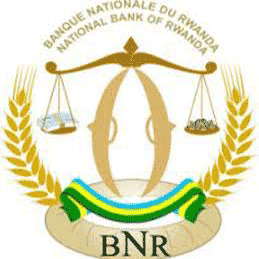 The National Bank of Rwanda (BNR) has been awarded the Alliance for Financial Inclusion (AFI) Policy Award for 2014 in recognition of its “innovative and impactful financial inclusion policies”.
The National Bank of Rwanda (BNR) has been awarded the Alliance for Financial Inclusion (AFI) Policy Award for 2014 in recognition of its “innovative and impactful financial inclusion policies”.
John Rwangombwa, the central bank governor tweeted after receiving the award that the accolade was in “recognition of Rwanda’s visionary leadership”, to which he attributed the success of the Umurenge Savings and Credit Cooperatives (Saccos) programme”.
The governor received the award on behalf of the central bank during the 2014 AFI Global Policy Forum in Port of Spain, in the island nation of Trinidad and Tobago. Umurenge Saccos have been a financial inclusion successstory, which have in just three years attracted over 1.6 million customers.
Saccos and other microfinance institutions in the country currently serve almost the same number of customers as those of commercial banks, according to AFI.
Today, more than 90 per cent of Rwandans live within a five kilometre radius of the nearest Umurenge Sacco.
Commenting on the award, Gilbert Habyarimana, head of Umurenge Saccos at the Rwanda Co-operative Agency, said microfinance institutions serve a segment of the population that had been ignored by commercial banks.
“Microfinance institutions and Saccos have enabled rural people have access to financial services, save and lend to each other. This has led to the creation of jobs in the country as more people venture into different businesses with financing from Saccos,” explained Habyarimana.
The AFI forum, which ended yesterday, was held under the theme, “Global partnerships, national goals, empowering people”.
AFI members had the opportunity to exchange knowledge and experiences, and work together to move the financial inclusion agenda forward, according to Rwangombwa.
The forum was a follow up to the one held in Kigali in July on “Financial inclusion for inclusive growth and sustainable Development international”, which was organised by the central bank in partnership with the World Bank, the African Development Bank (AfDB) and AFI.
 A delegation from Mozambique participated in the 4th Economic Global Summit held at World Trade Centre in Mumbai, on September 11, 12 and 13. The three member Mozambican delegation comprising - Mr. Claire Mateus Zimba, General Manager of the Institute for Promotion of Micro, Small and Medium Enterprises- IPEME, Ms Cecilia Candrinho, Executive Director at the Export Promotion Institute-IPEX both under the Ministry of Industry and Commerce, Government of Mozambique and, Mr. Oliveira Amimo, Economic Counsellor at the High Commission of the Republic of Mozambique in New Delhi, attended the three days summit organized by the World Trade Center in Mumbai.
A delegation from Mozambique participated in the 4th Economic Global Summit held at World Trade Centre in Mumbai, on September 11, 12 and 13. The three member Mozambican delegation comprising - Mr. Claire Mateus Zimba, General Manager of the Institute for Promotion of Micro, Small and Medium Enterprises- IPEME, Ms Cecilia Candrinho, Executive Director at the Export Promotion Institute-IPEX both under the Ministry of Industry and Commerce, Government of Mozambique and, Mr. Oliveira Amimo, Economic Counsellor at the High Commission of the Republic of Mozambique in New Delhi, attended the three days summit organized by the World Trade Center in Mumbai. The South African government announced a wide-ranging support package for troubled state-owned power supplier Eskom, that will see it receive an equity injection and raise additional debt.
The South African government announced a wide-ranging support package for troubled state-owned power supplier Eskom, that will see it receive an equity injection and raise additional debt. Telecom firms have been urged to scale up online services in government agencies to support efforts aimed at improving service delivery and efficiency.
Telecom firms have been urged to scale up online services in government agencies to support efforts aimed at improving service delivery and efficiency. “AKWAABA – African Travel Market,” Nigeria’s premier tourism and travel trade show, which this year will take place from October 26-28 in Lagos, will for the first time welcome the Uganda Tourism Board and a number of Ugandan stakeholders. Arguably spurred by the success that neighboring countries had as a result of attending West Africa’s most important tourism fair, Uganda Tourism decided to throw their own hat in the ring and vie for more visitors from Nigeria and beyond.
“AKWAABA – African Travel Market,” Nigeria’s premier tourism and travel trade show, which this year will take place from October 26-28 in Lagos, will for the first time welcome the Uganda Tourism Board and a number of Ugandan stakeholders. Arguably spurred by the success that neighboring countries had as a result of attending West Africa’s most important tourism fair, Uganda Tourism decided to throw their own hat in the ring and vie for more visitors from Nigeria and beyond. With cases of the Ebola virus disease continuing to surface at unprecedented speed in West Africa, the International Federation of Red Cross and Red Crescent Societies (IFRC) is expanding its emergency operations in Guinea, Liberia and Sierra Leone to reach millions more people through increased activities. The IFRC has revised its three emergency appeals for Guinea, Liberia and Sierra Leone to a total of 30.2 million Swiss francs, an increase of 24 million Swiss francs.
With cases of the Ebola virus disease continuing to surface at unprecedented speed in West Africa, the International Federation of Red Cross and Red Crescent Societies (IFRC) is expanding its emergency operations in Guinea, Liberia and Sierra Leone to reach millions more people through increased activities. The IFRC has revised its three emergency appeals for Guinea, Liberia and Sierra Leone to a total of 30.2 million Swiss francs, an increase of 24 million Swiss francs.




